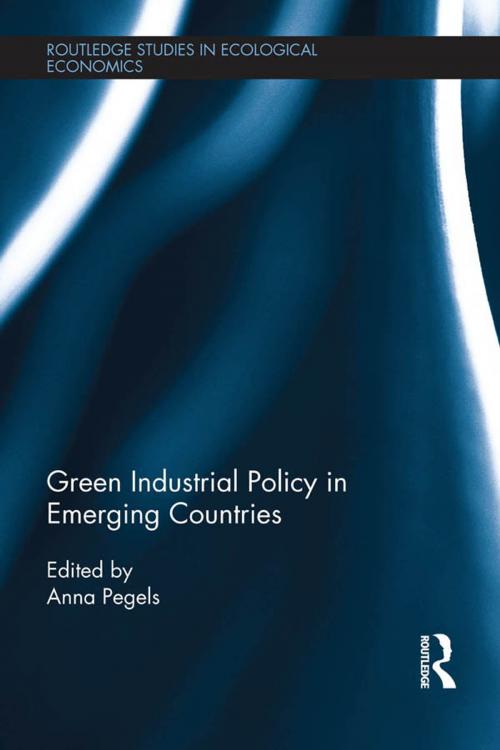Green Industrial Policy in Emerging Countries
Business & Finance, Economics, Sustainable Development| Author: | ISBN: | 9781136024085 | |
| Publisher: | Taylor and Francis | Publication: | March 5, 2014 |
| Imprint: | Routledge | Language: | English |
| Author: | |
| ISBN: | 9781136024085 |
| Publisher: | Taylor and Francis |
| Publication: | March 5, 2014 |
| Imprint: | Routledge |
| Language: | English |
For decades, governments have tried to foster industrial competitiveness and economic growth. Many instruments are known to work, and many lessons have been learned. However, humanity is increasingly feeling the effects of natural resource depletion. The rate of this depletion is deeply unsustainable, and it is – as of yet – inextricably linked to economic growth and development. To preserve acceptable living conditions for future generations, while at the same time creating these conditions for millions of poor in the first place, we must achieve a de-linking of economic activity and resource depletion.
This book identifies the drivers and success factors of green industrial policy, which seeks to reconcile the synergies and trade-offs which exist between economic and environmental goals. Greening the economy is a goal which will require enormous investment. As markets are currently failing to provide the required incentives for environmental sustainability, governments must intervene and provide ‘policy rents’ for investments in sustainability while withdrawing rents from polluting investments. In this they will face the risk of political capture by interest groups and difficult choices among technologies. Rent management is therefore the heart of green industrial policy and the focus of this book. On top of this, the country examples provided in this volume focus on the emerging powers, which will have an important influence the future of our planet. However, the lessons learned are valuable not only for countries introducing green industrial policies for the first time, but also for those under pressure to reform existing policies.
This book will be of interest to students, researchers and policymakers in the areas of energy policy, sustainable development, industrial economics and ecological economics.
For decades, governments have tried to foster industrial competitiveness and economic growth. Many instruments are known to work, and many lessons have been learned. However, humanity is increasingly feeling the effects of natural resource depletion. The rate of this depletion is deeply unsustainable, and it is – as of yet – inextricably linked to economic growth and development. To preserve acceptable living conditions for future generations, while at the same time creating these conditions for millions of poor in the first place, we must achieve a de-linking of economic activity and resource depletion.
This book identifies the drivers and success factors of green industrial policy, which seeks to reconcile the synergies and trade-offs which exist between economic and environmental goals. Greening the economy is a goal which will require enormous investment. As markets are currently failing to provide the required incentives for environmental sustainability, governments must intervene and provide ‘policy rents’ for investments in sustainability while withdrawing rents from polluting investments. In this they will face the risk of political capture by interest groups and difficult choices among technologies. Rent management is therefore the heart of green industrial policy and the focus of this book. On top of this, the country examples provided in this volume focus on the emerging powers, which will have an important influence the future of our planet. However, the lessons learned are valuable not only for countries introducing green industrial policies for the first time, but also for those under pressure to reform existing policies.
This book will be of interest to students, researchers and policymakers in the areas of energy policy, sustainable development, industrial economics and ecological economics.















